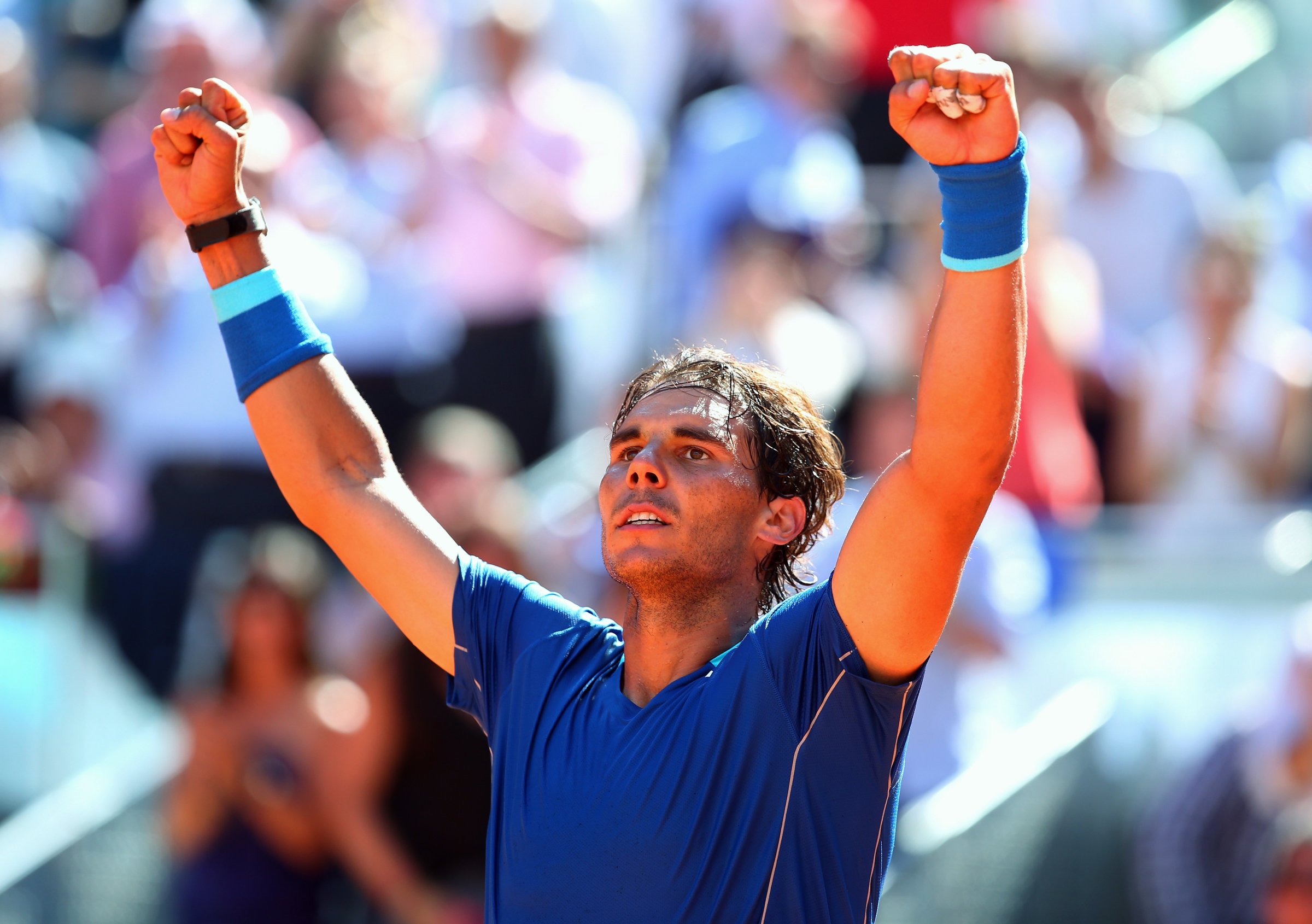
This week’s print edition of TIME includes a feature story on Rafael Nadal, the world’s number one player who is chasing Roger Federer’s record of 17 Grand Slam titles (Nadal has 13). The French Open begins May 25: Nadal has won eight of the last nine French Open titles, but enters this year’s tournament having lost matches in three clay-court tuneup tournaments, something that hasn’t happened since 2003, when Nadal was 16. Below are some excerpts from TIME’s interview with the Spanish superstar:
On preferring five set classics to straight set blowouts ….
“I never like the easy matches. I think that good sportsmen don’t like the easy wins … At the end, if you are winning with a little more drama, it stays in your mind a lot longer than when you are winning easy, no?”
On why he loves Roland Garros, home to the French Open, and playing on clay …
“I always like to play on this beautiful surface that gives you an opportunity to attack, an opportunity to defend. I like this thing. I understand the sport this way. It needs strategy, it needs suffering, it needs good possibilities to make the game interesting, no?”
On the state of his knee …
“I’m still having pain a lot of days. The only thing I wish is that the pain is only minding me when I’m competing. Because I really like to enjoy the rest of the time of my life.”
On confidence …
“I doubt about myself,” Nadal says. “I think the doubts are good in life. The people who don’t have doubts I think only two things: arrogance or not intelligence.”
On whether Nadal can possibly enjoy his epic matches as much as his fans do …
“It’s difficult to understand for somebody who is not on the court. I don’t know if the word is enjoy. But in some way that feeling is great when you are there and are playing well, the opponent is one of the best in the world, you are competing for important things and you are fighting and you resist a little bit more. You need to find another solution, you need to put one more ball in play, with the right determination in that point because it’s the point that can change the dynamic of the match. So all these things, it’s difficult to say you’re enjoying, but it’s, in some way, yes, I will say—I appreciate what’s going on in that moment. Because all my career, all my life, I work hard to be there, and today you feel there, you are healthy, you are able to run, you are able to fight, you are able to play for something that was a dream for you since you were a kid. You appreciate the moment a lot.”
More Must-Reads from TIME
- Cybersecurity Experts Are Sounding the Alarm on DOGE
- Meet the 2025 Women of the Year
- The Harsh Truth About Disability Inclusion
- Why Do More Young Adults Have Cancer?
- Colman Domingo Leads With Radical Love
- How to Get Better at Doing Things Alone
- Michelle Zauner Stares Down the Darkness
Write to Sean Gregory at sean.gregory@time.com